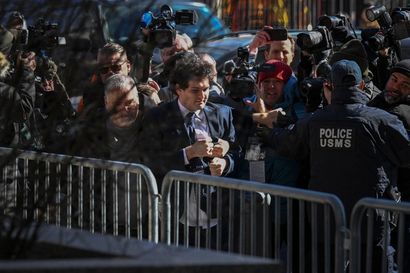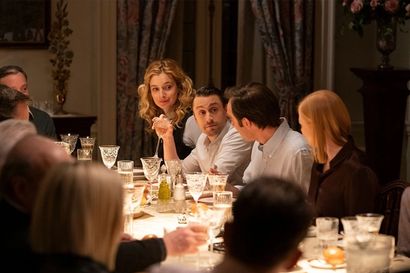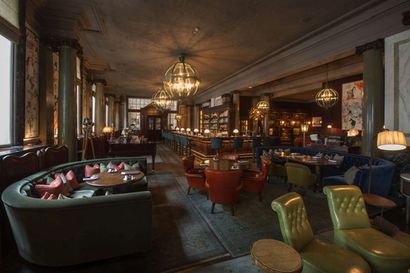“Never hire someone without going to a restaurant with them first”: Ruth Rogers, founder of the River Cafe
The River Cafe is London's enduring power restaurant — but its founder's podcast is even more impressive...
There’s only one thing more impressive than securing a table at the River Cafe — and that’s locking down a slot on the River Cafe podcast. The restaurant itself has long been enshrined in folklore: a nigh-on unbookable fixture, with don’t-look-now stars swanning in from the bar, and Ruth Rogers herself — the beloved founder — dazzling from the fabled open kitchen. But the podcast is the top table above the top table — a sort of Bilderberg Group with extra virgin olive oil (and extra lovely people, of course.) A natural extension of the restaurant’s bubbling atmosphere— with its comforting Italian fare and continental bonhomie — Rogers’ new interview show uses food as the spark and backdrop for friendship and for storytelling. Where else might Sir Paul McCartney say ‘quesadillas’ with quite such brio? Or Jake Gylenhaal speak in almost broken tones of tomato pasta? The show, like the restaurant, and like its peerless founder, serves up food for thought in the best possible way — a reminder, essentially, that what we eat is who we are.
RR: Food is about memory. When you talk to people about their childhood, and you don’t ask where they lived, what their father did, or where they went to school, but instead ask what they ate as a child, or whether they went to the market with their mother, or whether they went to restaurants, and what kind — it becomes a very special conversation.
I first came to England on the SS France, which landed in Southampton. This was 1968, and there were quite a lot of American students going to Europe to study because they were opposed to the Vietnam War. I remember being quite homesick that first week, and quite surprised that I had done this. When I started eating in Restaurants, I ate in Ethnic restaurants — we ate Indian food in Camden town, and there were a lot of Greek tavernas and Cypriot restaurants.
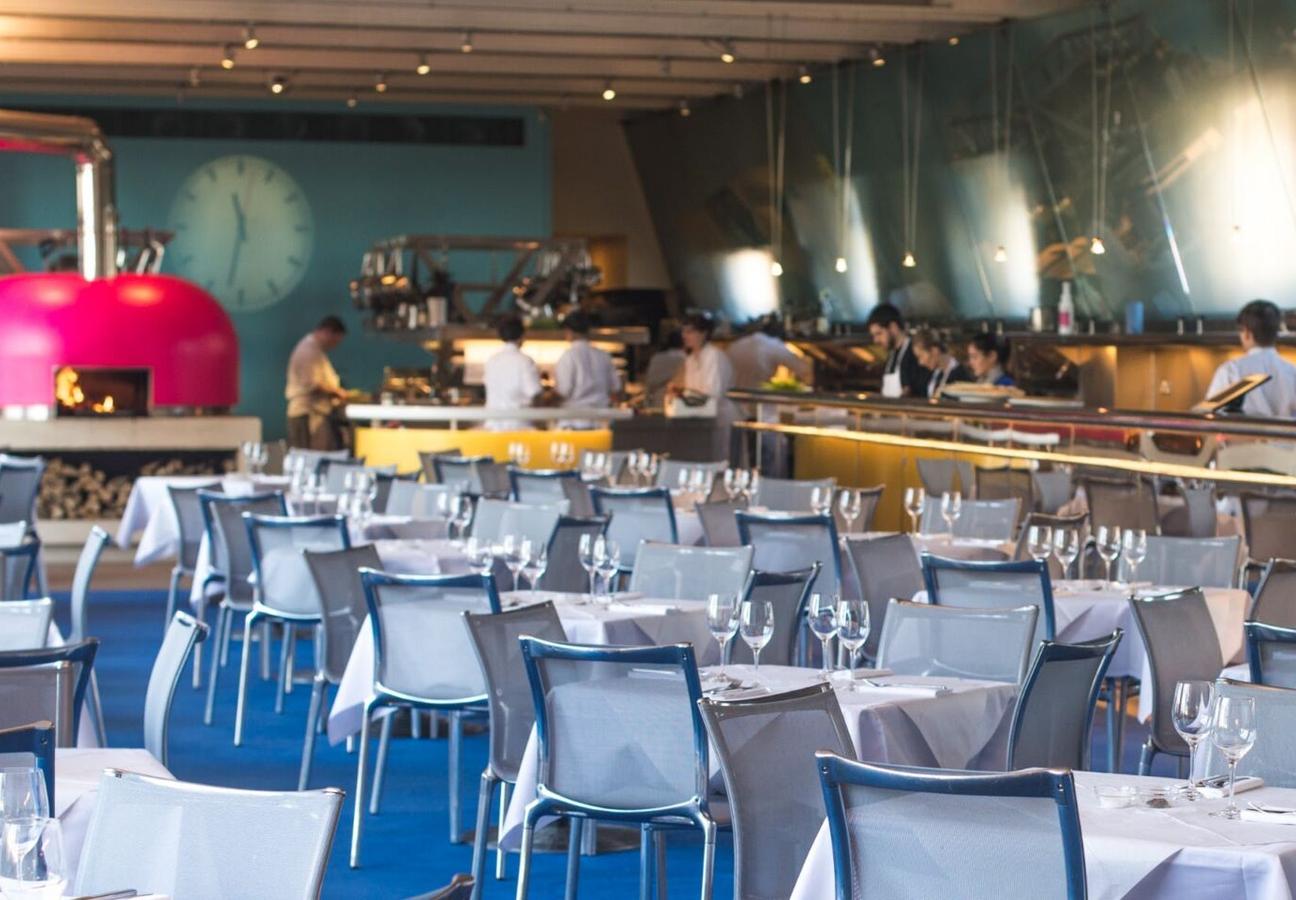
I wasn’t exposed to posh restaurants back then. So I started cooking at home with my friends. We ate very simply. But I’m much less harsh on the food scene in the 50s and 60s because Britain had just come out of the war, and there was rationing. So if they couldn’t cook, or couldn’t get parmesan or olive oil — I feel pretty non judgemental on that.
My husband, Richard Rogers, was the architect who did the Pompidou centre, so we lived in Paris for about six years. And when he came back, in 19xx, he wanted to have an office that felt like a community. So rather than move in to the City, he searched for a place with a garden and light, and he found these old warehouses that belonged to Duckhams Oil in Fulham. The team wanted to have something to eat, and there was a small space that was designated as a little cafe. And I told him that the only thing worse than not having anything to eat at all was having something as mediocre as a cafe. So I said: maybe I’ll do it.
"The label 'celebrity hotspot' never mattered to me..."
We always had early on ambitions to be something more. But the reality back then was that the planning license said we could only be open at lunchtime, and only serve the people working in the offices. But in reality that was a good thing: we had time to grow with the restaurant.
It was exciting in the 1990s to see how Britain reached out. People could fly to the US for £200, and we could go to Paris for £10, and suddenly everyone was travelling. And when you travel, you eat different food, and you bring back different food, and you change. When we opened, we had papa pomodoro — bread and tomato and basil — and people said: ‘what is this?’ But by the end of the nineties people understood Italian food. That’s why my heart sinks with what we’re going through right now — shutting down borders, and making it harder to import food and ingredients.
The label ‘celebrity hotspot’ never mattered to me or to Rose. The people who come here are very often celebrities, because they’ve achieved something. But the people who matter to us are the regulars, or the people who might have come to this restaurant having saved up all month or all year. So we are grateful for the people who come and eat here, whether they’re rich or poor, known or unknown.
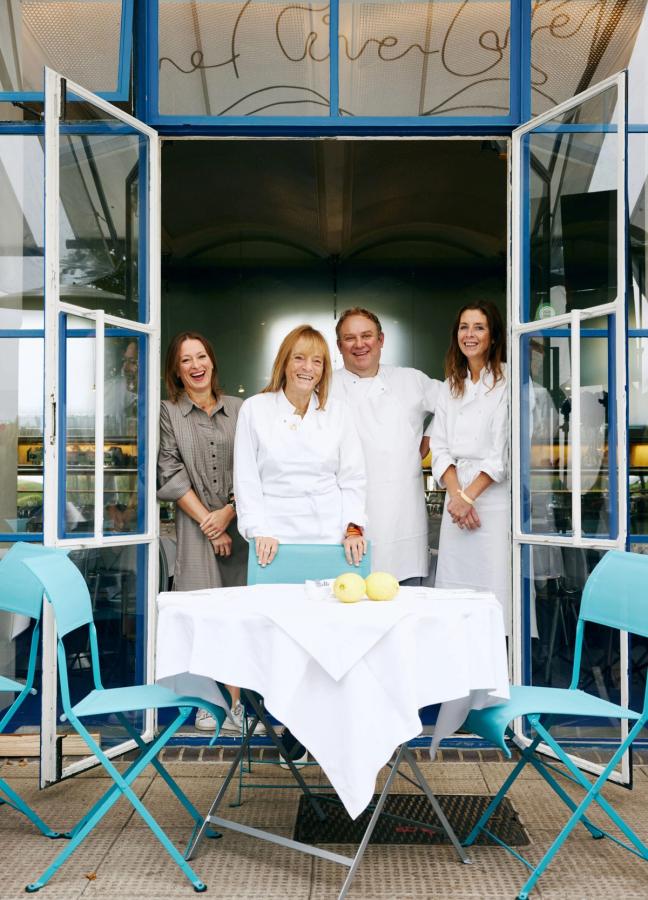
The River Cafe: “The Last Fuck You”.
One of the things that stays with me about doing our podcast is that nobody felt entitled. Although you could look at people and say what a success they are now, they almost all felt surprised by that success. In many ways, it was measured by actually going to a restaurant and being able to order a good wine, or being exposed to a different kind of food, or being able to travel in a way that they couldn’t do growing up. I thought that was very moving.
Many people tell me they wouldn’t hire someone for a job without going with them to a restaurant first. You learn so much. Do they say thank you to the waiter when they put down the food? Do they get impatient? Do they share? There’s something very revealing about the way people are in these situations.
Sometimes before service I walk out to where they park the cars, and then I walk into the reception desk, and then I walk down the bar, and I try to put myself in the shoes of somebody who might be walking into the restaurant for the first time, or after a bad day. Ralph Fiennes says he does that in the theatre — that he walks through the lobby, and then through the empty seats before he performs. I suppose a restaurant is a bit of a performance, too.
If I had to choose a comfort food, it would be pasta with tomato. I know that I’ve had some moments of crisis in life, and I’ve said: just put on the tomato sauce, I need to smell that sauce cooking. It’s more about the process. It doesn’t even have to be pasta — it could be tomato sauce on bread, or with a piece of mozzarella. But when I put that in my mouth I feel like I’m in Italy, and therefore I feel comforted.
To listen to our full podcast interview with Ruth, subscribe to the Gentleman’s Journal Podcast — available wherever you get your podcasts, as they say.
Find The River Cafe’s online shop here.
And do check out Ruth’s brilliant podcast, River Cafe Table 4, here.
Read next: Ben Francis’ journey from bedroom to billion

Become a Gentleman’s Journal Member?
Like the Gentleman’s Journal? Why not join the Clubhouse, a special kind of private club where members receive offers and experiences from hand-picked, premium brands. You will also receive invites to exclusive events, the quarterly print magazine delivered directly to your door and your own membership card.
